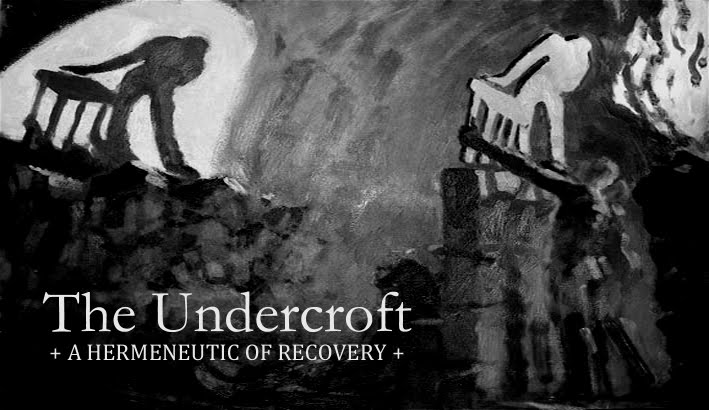It wasn't my intention to discuss the "F" word so early in these reflections, but with it being that time of year when the apprehensive voyager East scans the
liturgical calender with mounting dismay, bordering on horror and revulsion, it seems prudent to offer a floatation aid and a wholesome ships' biscuit (spit out the weevils - no animal products) before we pass the harbour bar.
There are any number of excellent articles on fasting out there, by respected Orthodox pastors and theologians. I am neither of those, and the subject of this post is Not Fasting - Not Fasting for the Not-Yet-Orthodox.
So what is fasting not, and how do we approach the business of Not Doing It?
The first thing that has to be stated clearly is that it is not "penance" and it is not "meritorious". Orthodoxy knows neither "merit" nor magic. It insists, rather, on
synergia (St Paul's term) - "co-operation"; but more on that subsequently.
In any case, the Church is not a boot-camp nor a penal colony and neither is it a perfectionist cult. It's a hospital.
The second thing fasting isn't is
compulsory. Nothing in Orthodoxy is compulsory. You are (very scary, this) completely free and completely responsible. Here is medicine. Take it or don't take it - your choice.
Third - it isn't easy. It has to be learned, with patience and humility, and "success" often fails where failure succeeds. If you're proud of having eaten nothing but bread, beans and cabbage for six weeks, you'd have been far better never to have done it. Failure, on the other hand, humbles us.
"You will not take pleasure in whole burnt offerings; a sacrifice to God is a broken spirit. A broken and a humbled heart, God will not despise". So whereas
refusal to fast may be sinful if it's evidence of pride,
failure to fast can be salutary if it teaches us humility. It's a means, not an end. There's only One End.
Now: imagine you're a Greek, from 40 generations of Orthodox Greeks. He comes home from work having lunched on a little good bread and fragrant bean soup and sits down with his Orthodox family for dinner, prepared by his Orthodox wife, who has artfully deployed 40 generations' Orthodox experience in manipulating the modest range of fresh, seasonal ingredients to produce a variety of gustatory delights, familiar from earliest childhood. Your own situation is somewhat different. You get home before your (RC) wife, and scan the cupboard for anything that isn't another tin of baked bloody beans or jar of peanut bloody butter. Halfway through the search, she arrives, loaded with fractious children and Tesco's bags.
"Don't worry, love!" she sighs -
"I've got us a pizza - you can't eat meat, right?".
So - do you roll your eyes, pound your forehead, throw your arms out and shout
"I can't eat bloody cheese, either!!!" - or do you kiss the mother of your children and put the oven on?
If your colleague brings you a massive wedge of chocolate cake because it's her birthday do you modestly decline
"because I'm fasting", or kiss her on both cheeks and attack it with relish?
Do you spend an extra half-hour in the supermarket scrutinising lists of ingredients for concealed animal proteins, or do you make a number of reasonably informed choices and chuck them in the bloody basket?
In case it isn't obvious, the latter option is the correct one in each case. Don't be a hero (you'll fall flat on your face), don't be a Pharisee (you don't need me to tell you why not) and don't be a pain in the neck to those around you. Do what you can, don't make a fuss and
don't worry.








